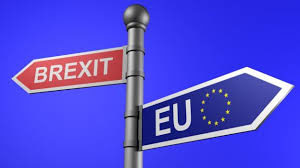 As the Brexit negotiations continue to hit stumbling blocks, and with a no-deal scenario looking more and more likely, companies looking to expand internationally are becoming increasingly concerned. But if the UK does end up leaving without a deal, and if other countries become similarly Eurosceptic, how will this affect the future of the European Union?
As the Brexit negotiations continue to hit stumbling blocks, and with a no-deal scenario looking more and more likely, companies looking to expand internationally are becoming increasingly concerned. But if the UK does end up leaving without a deal, and if other countries become similarly Eurosceptic, how will this affect the future of the European Union?
While the EU has seen many states become members during its decades of existence, it has never had a member state leave – so there is no existing model which can be used to definitively predict the exact consequences of the UK’s departure. The situation will be further complicated if the UK leaves without a deal, which would most likely see the UK and EU’s trading relationship fall back under standard World Tarde Organisation (WTO) rules.
In the event of the UK leaving without a deal, there would be a number of immediate consequences across the rest of Europe, which would impact companies going international. The capital disruption would be significant, and felt outside of Europe itself – this includes the United States and China; prior to Brexit, China had placed a lot of stock in the security afforded by European solidarity, with the EU becoming China’s biggest export market.
With the UK’s departure, there could be immediate disruption regarding the border between the Republic of Ireland and Northern Ireland. The political debate continues to rage over the viability of a hard customs border. Other national borders between the UK and the EU27 would have to be strengthened considerably, and the movement of people and goods would consequently be subject to a greater number of checks, tariffs and customs delays. This could affect business’s supply chains and exports and imports, a factor that must be taken into account by businesses looking to expand, as well as well as those who already do business across European borders.
Earlier this year, the International Monetary Fund (IMF) warned that a scenario in which the UK left without a deal, and reverted back to WTO rules, would harm the economic growth of other EU countries. Although the IMF’s predictions have the UK as the worst country affected, with a 4% drop in GDP by 2030, the remaining 27 EU member states would see a collective decline of 1.5%. It may be the case that businesses with plans to expand into the EU from elsewhere in the world, will hold off on their plans until the consequences of a hard Brexit become clearer.
However, it is looking unlikely that the fallout from Brexit will destabilise the rest of the EU any time soon. The EU has shown remarkable solidarity in its response to Brexit, and the UK’s current difficulties may well deter other EU members from leaving. International businesses should remember that Germany, the fourth largest economy in the world, is the dominant economy in the EU and has the power to leverage debate and policies within it. Germany is a strong supporter of the EU and that shows no signs of changing.
Businesses with their sights set on expansion to the EU, or who are already doing business across European borders, are therefore advised to proceed with a degree of caution until the impact of Brexit begins to become clearer. Companies going international can also take steps to prepare themselves for the possibility of disruption in Europe – the expansion consultancy Galvin International suggests that setting up a legal entity in Europe can offer an an extra layer of protection, for example.




No Comments